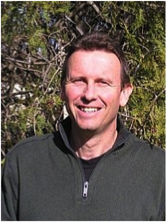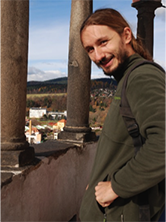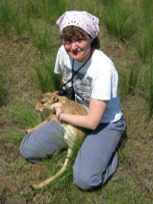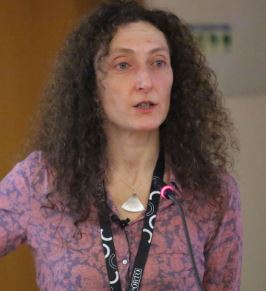Program > Plenary Speakers
Plenary speakers
|
Thierry Dutoit is a research director at the National Center for Scientific Research (CNRS) and a member of the Mediterranean Institute of Biodiversity and Ecology. Before joining the CNRS in 2012, he was Professor at the University of Avignon. He has co-authored more than 200 publications, 70 of which appeared in international indexed journals. He has also co-authored 50 scientific book chapters in the field of plant community ecology and conservation sciences. As a plant ecologist, the objectives of his research are mainly on assembly rules and species-coexistence in Mediterranean plant communities. He is particularly interested in the long-term recovery of Mediterranean grasslands after major disturbances in historical or recent times. Since 2000, he is particularly involved in concrete restoration projects of Mediterranean rangelands after agricultural or industrial degradations. During his talk, he will present the last conceptual advances in restoration ecology. He will address in particular the present paradigm shift between a costly and active restoration of the biodiversity of old cultural ecosystems and the passive restoration of the naturalness of new ecosystems. Nevertheless, several examples will be used to show how recent advances in ecological engineering can link these two concepts.
Read his abstract "Release or restore ecosystems?"
|
 |
|
François Massol is a researcher at the CNRS in the team “Evolution & Ecology” of the unit “Evolution, Ecology and Paleontology” at the University of Lille (UMR 8198). His research covers the study of spatial dynamics of interspecific interactions and of diversification at intra- and inter-specific levels, mostly from a theoretical viewpoint. More generally, he is interested in evolutionary ecology questions pertaining to species interaction networks, spatially structured ecological systems, and the diversity and stability of these systems. He also participates in interdisciplinary projects with researchers from mathematics, computer science, physics and social sciences, in particular on questions related to modelling and statistically analyzing contact and interaction networks.
Read his abstract "Networks of interactions in ecology"
|
 |
|
E.J. Milner-Gulland is Tasso Leventis Professor of Biodiversity in the Department of Zoology, University of Oxford, and leads the Interdisciplinary Centre for Conservation Science. Her research falls within three broad themes: Motivations of natural resource users; social-ecological system dynamics; management of natural resource use. The first theme addresses the drivers of human behaviour, the second the feedbacks between behaviour and system dynamics, and the third the effects of interventions designed to alter behaviour and hence slow the rate of biodiversity loss. She has a particular interest in theconservation ecology of the saiga antelope in Central Asia, the sustainable use of wild resources such as bushmeat, evaluating the social impacts of conservation, and improving the effectiveness of incentive-based mechanisms such as PES and biodiversity offsetting in the marine and terrestrial realms.
Read her abstract "Understanding motivations as the key to addressing the illegal international trade in wildlife"
|
 |
|
Anna Traveset is a research professor based at the Mediterranean Institute of Advanced Studies (CSIC-UIB). Her research involves the study of plant-animal interactions in terrestrial ecosystems, especially island ecosystems. She works in different archipelagos, including the Balearics, the Canaries and the Galapagos, and is lately focused on the impacts of different types of disturbances on mutualistic interactions, specifically pollination and seed dispersal. Biological invasions are currently one of the main threats to natural systems, particularly on islands, and their negative impact is amplified under the scenario of global change and globalization that our planet is experiencing. Ecologists have begun only in the last decade to evaluate the role of mutualisms in the structure of communities as well as the fragility of many mutualistic interactions. Specifically, the impacts of invasive species on native mutualisms are still poorly documented, although the data available so far indicate that they are very relevant and that they should be considered in any habitat restoration program. In her talk, she will highlight the importance of incorporating positive interactions in the study of biological invasions and in the evaluation of their ecological and evolutionary impacts. She will show how the framework of complex ecological networks can help us understanding the mechanisms of alien species integration in the native communities as well as predicting species and interaction losses that might even lead to an extinction cascade in the invaded communities.
Read her abstract "Mutualisms: drivers, and in turn victims, of biological invasions"
|
 |
|
Purificación LOPEZ-GARCIA
P Lopez-Garcia, Director of Research at the CNRS, is the leader of the team Ecologie Systématique Evolution, CNRS, Université Paris-Sud, Université Paris-Saclay, AgroParisTech, in Orsay.
Her centers of interest focus on the diversity, ecology and evolution of microorganisms belonging to the three domains of life (archaea, bacteria, eukaryotes).
Read the abstract of her keynote: "Microbial life through the lens of molecules"
|
 |
Colomban DE VARGAS
Directeur de recherches au CNRS et chef de l’équipe Evolution des protistes et écosystèmes pélagiques à la station biologique de Roscoff (UMR 7144). Ses recherches sont centrées sur une question : Quelles sont la richesse et la diversité de la vie planctonique, comment a-t-elle évolué, et comment a-t-elle modifié et stabilisé le système terre ? Il a initié l’utilisation combinée de données génétiques, morphologiques et géologiques dans l’évaluation les taux et mode de changement dans la biodiversité des eucaryotes planctoniques unicellulaires ou protistes à différentes échelles de temps et d’espace. Depuis 2008, il coordonne les composantes ‘biodiversité’ et ‘protiste’ des expéditions Tara Océans (http://oceans.taraexpeditions.org/), explorant les réseaux d’interactions et la dynamique des systèmes planctoniques actuels à travers l’usage de séquençage ADN à très haut rendement et de technologies d’imagerie. Jusqu’en 2020, il coordonnera le programme OCEANOMICS(wOrld oCEANs biOressources, biotechnologies, and Earth-systeM servICeS, http://www.oceanomics.eu/), visant à analyser et transférer à la société les jeux de données éco-morpho-génétiques complexes collectées au cours de Tara Océans. Son rêve pour l’avenir est la création sur le long terme d’une flotte de voiliers volontaires – les planctonautes -, qui collecteront des échantillons de planctons à diverses échelles spatio-temporelles. Une telle océanographie citoyenne permettra de prendre le pouls de nos océans en temps réel et de conserver la mémoire des changements rapides qu’ils encourent pour les générations futures (http://planktonplanet.org).
Research director at the CNRS, and leader of the team Evolution of Pelagic Ecosystems & Protists at the Station Biologique de Roscoff (UMR 7144). His research is centered on the question: How rich and diverse is plankton life, and how has plankton life evolved, and transformed/stabilized the Earth system? He pioneered the use of combined genetic, morphological, and geological data to assess rates and modes of biodiversity change in planktonic unicellular eukaryotes or protists on various ecological to geological time scales. Since 2008, he coordinates the ‘biodiversity’ and ‘protist’ components of the Tara Oceans expeditions (http://oceans.taraexpeditions.org/), exploring the interaction networks and dynamics of modern plankton eco-systems using high-throughput DNA sequencing and imaging technologies. Until 2020, he will coordinate the program OCEANOMICS(wOrld oCEANs biOressources, biotechnologies, and Earth-systeM servICeS, http://www.oceanomics.eu/), aiming at analyzing and transferring to the society the complex eco-morpho-genetic datasets collected during Tara Oceans. His new dream is to create a long-lasting fleet of volunteer sailing boats -the planktonauts-, that will collect plankton samples on relevant spatial and temporal scales. This innovative citizen sailing oceanography will take the pulse of our global oceans health, while preserving a memory of fast-changing oceans biodiversity for future generations (http://planktonplanet.org).
Plenary Speakers
Plenary Speakers
|






